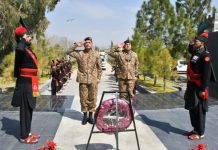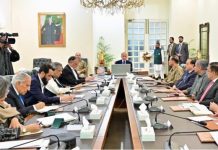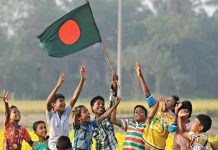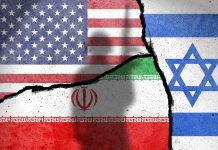

Dr. Syed Mehboob
Economic and Political Analyst
http//:www.thenewslark.com
email: drmehboob.thenewslark@gmail.com
It seems that the Unipolar world has ended now and has moved towards multipolarity.BRICS 2024 in Kazan, the Russian Federation’s beautiful city, proved this. This internationally important event was held from 22 to 24th October 2024. A total of 32 foreign delegations from all over the world attended 24 of them at the levels of heads of state and government, including all of the nine BRICS members to date, as well as numerous other countries interested in membership, including Turkiye for the first time a NATO member state. There were over 200 meetings and dozens of events.
Kazan is the largest city and capital of Tatarstan, Russia. The city lies at the confluence of the Volga and the Kazanka rivers, covering an area of 425.3 square kilometers, with a population of about 1.3 million people. Kazan is the fifth largest city in the Russian Federation. Kazan is renowned for its mixture and Muslim Tatar and Russian cultures. In 2023, 4 million tourists visited Kazan.
Russia is the founding member of this block and the BRICS first summit was also held in Russia on 16th June 2009. Due to American and other Western countries’ hegemony which made the world imbalanced and jeopardized global peace especially by imposing more than 1600 sanctions on Russia and also on Iran over the last forty years and its illegal support to the genocide of Palestinians in Gaza and the West Bank have forced many countries of the world to put their weight in alternate platforms as Israel and USA made the UNO, UNSC, UNGA, ICJ ineffective and crushed all global and international rules, laws, regulation, norms under their feet and indicated that they don’t care any laws, peaceful protests of billions of people including those in western countries. From this perspective, the 16th BRICS summit got immense importance.
BRICS is an International Organization comprising Brazil, Russia, India, China, South Africa, Iran, Egypt, Ethiopia, and the United Arab Emirates. This block has immense importance and brings a lot of economic, social, and political gain opportunities for its members.
Members States
| S.No | Country | Population in millions | Area Sqr Km | GDP PPP
Billion USD |
GDP Nominal
Billion USD |
| 1 | Brazil | 205.37 | 8,515,709 | 4,274 | 2,331 |
| 2 | Russia | 146.5 | 17,098,246 | 5,473 | 2,057 |
| 3 | China | 1,409 | 9,596,961 | 35,291 | 18,533 |
| 4 | India | 1,428 | 3,287,263 | 14,594 | 3,937 |
| 5 | South Africa | 62.02 | 1,221,037 | 1,026 | 401 |
| 6 | Iran | 89.82 | 1,648,195 | 1,255 | 464.18 |
| 7 | Egypt | 94.79 | 1,010,408 | 1,899 | 347.59 |
| 8 | Ethiopia | 109.49 | 1,112,000 | 431.68 | 205.13 |
| 9 | United Arab Emirate | 9.282 | 83,600 | 952.17 | 536.83 |
The founding countries of Brazil, Russia, India, and China held the first summit in Yekaterinburg in 2009. South Africa joined it later. Egypt, Iran, the United Arab Emirates, and Ethiopia joined it on 1st January 2024. Saudi Arabia has yet to join, however, anticipates its activities. Combined, the BRICS members encompass about 30 percent of the world’s land surface and 45 percent of the global population. South Africa has the largest economy in Africa whereas, Brazil, Russia, India, and China are among the world’s ten largest countries by population, area, and Gross Domestic Product (GDP) nominal and by purchasing power parity. All five initial member states are members of the G20, with a combined nominal GDP of US$ 28,000 billion ( 33% of global GDP PPP), and an estimated US$ 4.5 trillion in combined foreign reserves. The BRICS countries are considered the foremost geopolitical rivals to the G7 of leading advanced economies, implementing competing initiatives such as the New Development Bank, the BRICS Contingent Reserve Arrangement, the BRICS pay, the BRICS Joint Statistical Publications, and the BRICS basket reserve currency.
The following are the priorities of Russia for the BRICS Summit 2024.
Priorities of the Russian Federation’s BRICS Chairship in 2024
- The priorities in policy and security are:
- Seamlessly and harmoniously integrating the association’s new members into interaction in the BRICS format
- Developing modalities for interaction with BRICS partner countries
- Enhancing the efficiency of the system of international relations and ensuring its further democratization
- Upholding the supremacy of international law and the principle of the sovereign equality of states
- Creating strong BRICS ties with developing nations and their integration associations, including in the ‘outreach’ and ‘BRICS+’ formats
- Promoting the institutional development of BRICS
- Intensifying cooperation to ensure international security and strategic stability at the regional and global levels, and also to maintain and strengthen international legal regimes in arms control, disarmament, and non-proliferation
- Developing the capacity for cooperation in countering terrorism
- Combatting money laundering and the financing of terrorism
- Strengthening cooperation to combat crime, including efforts to return assets obtained by criminal means
- Developing practical cooperation to counter current challenges and threats in the illicit trafficking of narcotic drugs, psychotropic substances, and their precursors
- Intensifying the dialogue on anti-corruption issues
- Enhancing cooperation to establish a system for ensuring international information security in order to prevent and resolve conflicts in the information space and prevent it from being militarized
- Cooperation in economy and finance
- Uniting efforts against the fragmentation of the multilateral trade system increased protectionism, and the introduction of illegal unilateral trade restrictions
- Adapting the global trade system to threats related to the consequences of global crises
- Strengthening interaction among BRICS states on the relevant multilateral platforms, including the World Trade Organization, the International Monetary Fund, the World Bank Group, and the G20
- Increasing the volume of trade and direct investment
- Promoting a balanced and fair transition to a low-carbon economy
- Implementing the Action Plan for Innovative Cooperation for 2021-2024 and further intensifying cooperation in this area
- Enhancing the role of BRICS states in the international monetary and financial system
- Developing interbank cooperation, providing assistance in transforming the international payment system, and expanding the use of the national currencies of BRICS states in mutual trade
- Strengthening cooperation on the use of payment systems and financial technologies
- Intensifying the dialogue between BRICS states on industrial development issues that aim to promote increased labour productivity and digitalization
- Strengthening cooperation in the agricultural sector, including the development of mutual trade, as well as ensuring food security
- Intensifying cooperation in the energy sector, including assistance in ensuring energy security
- Expanding cooperation in the transport sector
- Boosting capacity to detect and respond to outbreaks of infectious diseases of international concern as well as interaction to reduce the spread of and eradicate epidemics
- Intensifying cooperation to prevent and eliminate the consequences of natural and man-made emergencies
- Strengthening cooperation in technology transfers using the potential of the network of BRICS centers and supporting joint high-tech production in BRICS states
- Intensifying cooperation among the business communities of BRICS states
III. Cooperation in the humanitarian and cultural spheres
- Institutionalizing interparliamentary cooperation
- Strengthening cooperation in education, including by building up the capacity of the BRICS Network University and the BRICS Cooperation Alliance in technical and vocational education
- Intensifying cooperation among representatives of the BRICS scientific and expert community
- Strengthening interaction among young scientists and innovators
- Promoting the development of multifaceted cooperation in cultural affairs
- Intensifying interaction in physical culture and sports
- Intensifying cooperation in tourism
- Enhancing practical interaction on the implementation of youth policy
- Promoting the development of social partnership, the volunteer movement, and volunteering
- Supporting cooperation among BRICS regions, cities, and municipalities
To be Continued























